Weekend Diversion: Trompe-l’œil Art
Deceive your eyes with this amazing art technique that makes 2-D drawings come alive!
“The contemporaries and rivals of Zeuxis were Timanthes, Androcydes, Eupompus, and Parrhasius. This last, it is said, entered into a pictorial contest with Zeuxis, who represented some grapes, painted so naturally that the birds flew towards the spot where the picture was exhibited. Parrhasius, on the other hand, exhibited a curtain, drawn with such singular truthfulness, that Zeuxis, elated with the judgment which had been passed upon his work by the birds, haughtily demanded that the curtain should be drawn aside to let the picture be seen. Upon finding his mistake, with a great degree of ingenuous candour he admitted that he had been surpassed, for that whereas he himself had only deceived the birds, Parrhasius had deceived him, an artist.” -Pliny the Elder, translation John Bostock
It goes all the way back to the ancient world, but the technique of using 2-D paintings to deceive the eye into believing it’s a 3-D scene, Trompe-l’œil, is still one of the most remarkable (and fun) artistic sights available to us today. Have a listen to David Bowie’s classic, Sound & Vision,
while I show you some of the best eye-deceiving paintings out there!
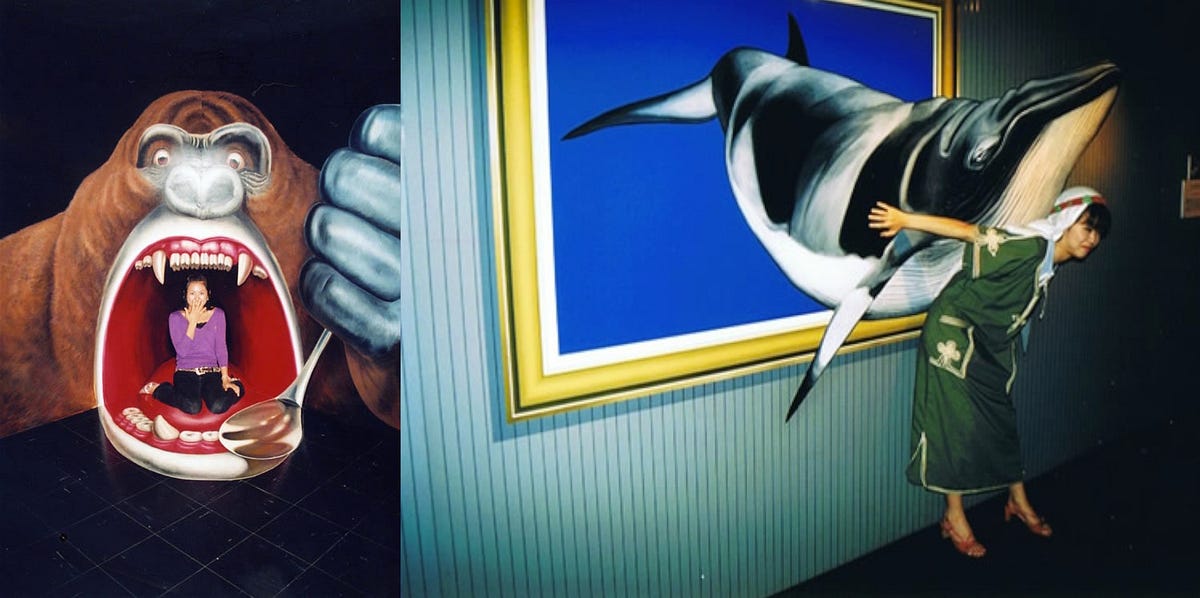
By playing with perspective, or by utilizing the corners of a room creatively, some incredibly impressive perspective illusions can be achieved.
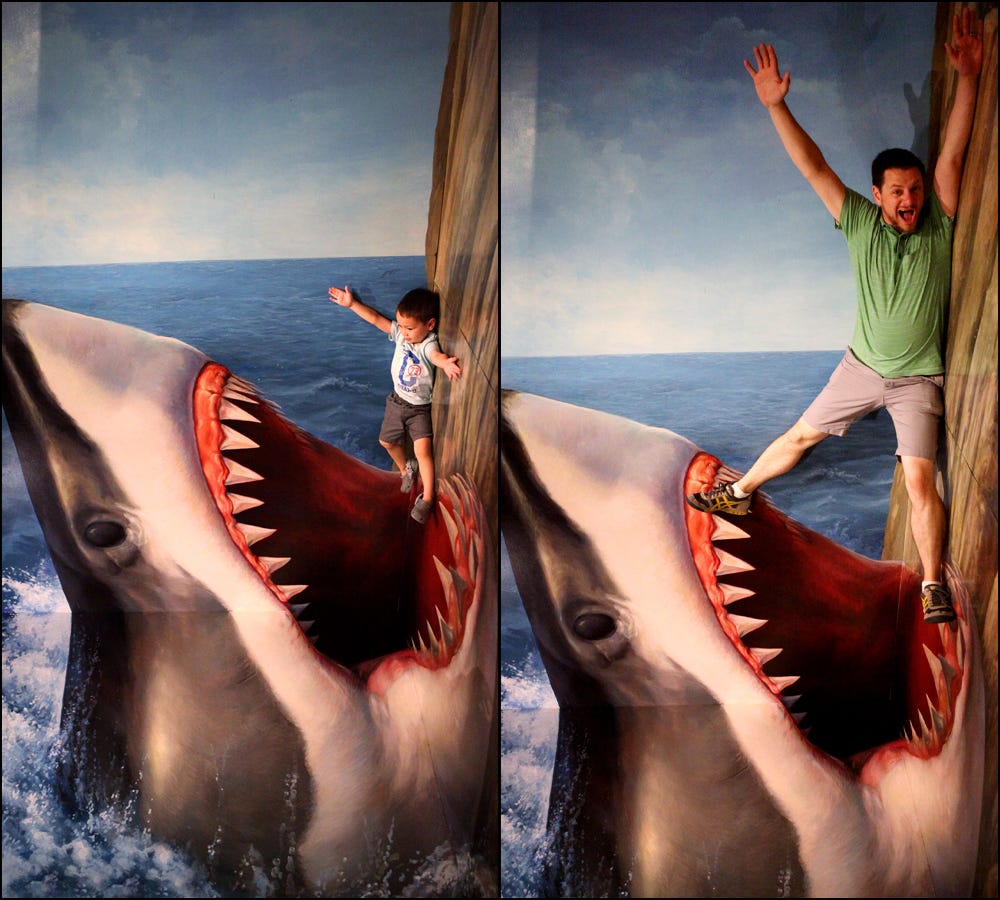
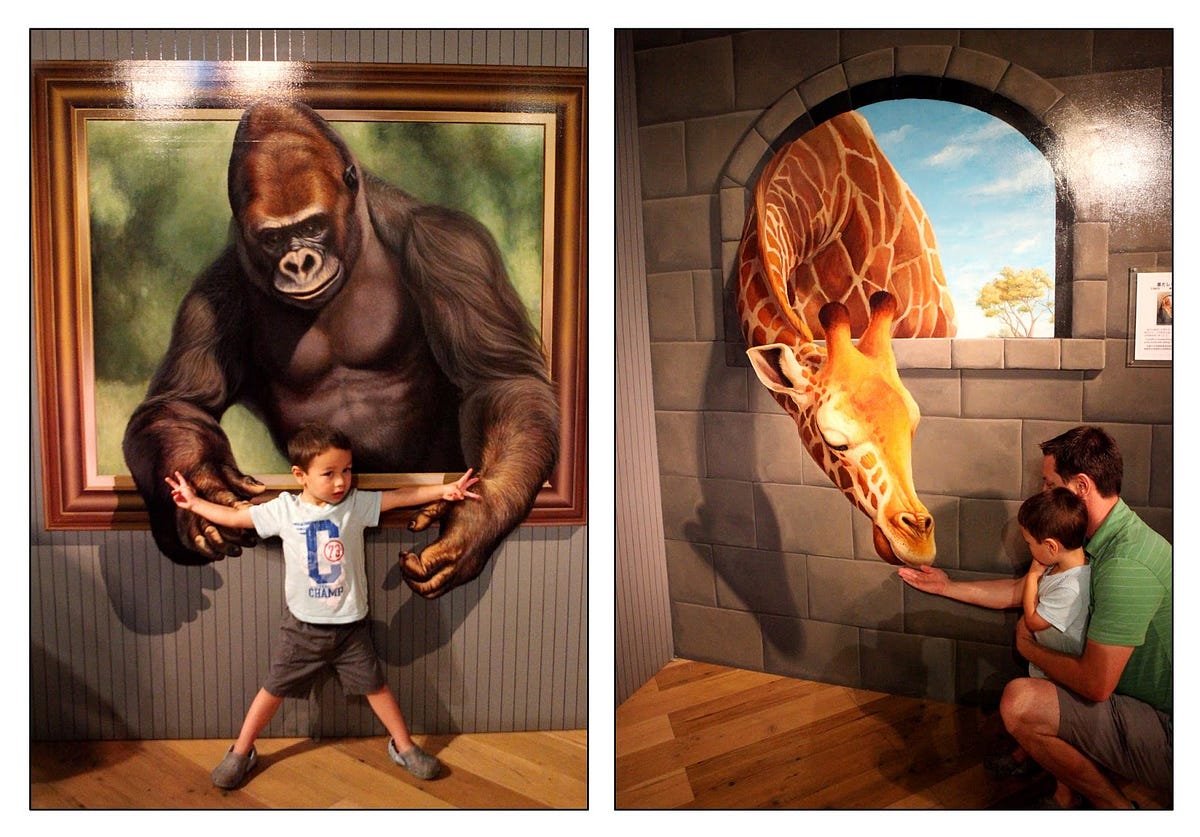
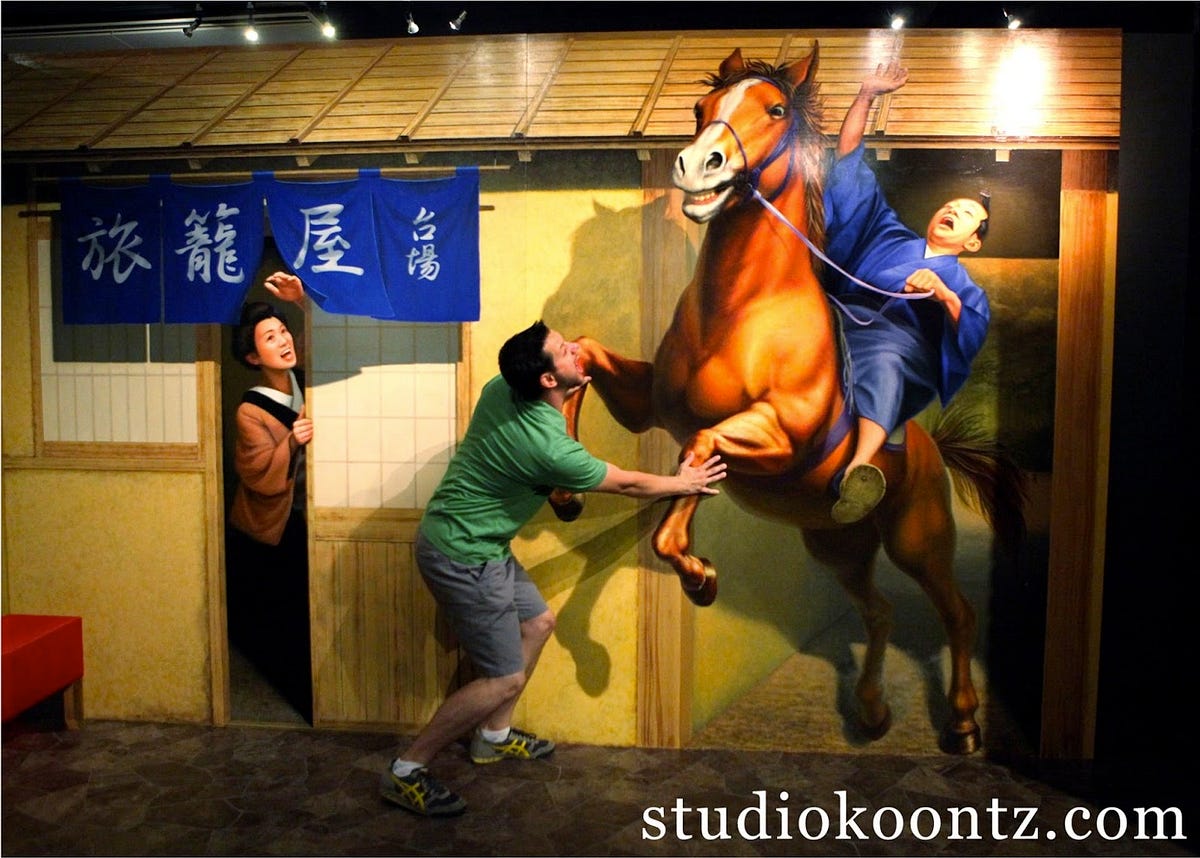
This is incredibly popular in Japan and South Korea, although I’ve also seen news of exhibits in Germany and Italy as of late.
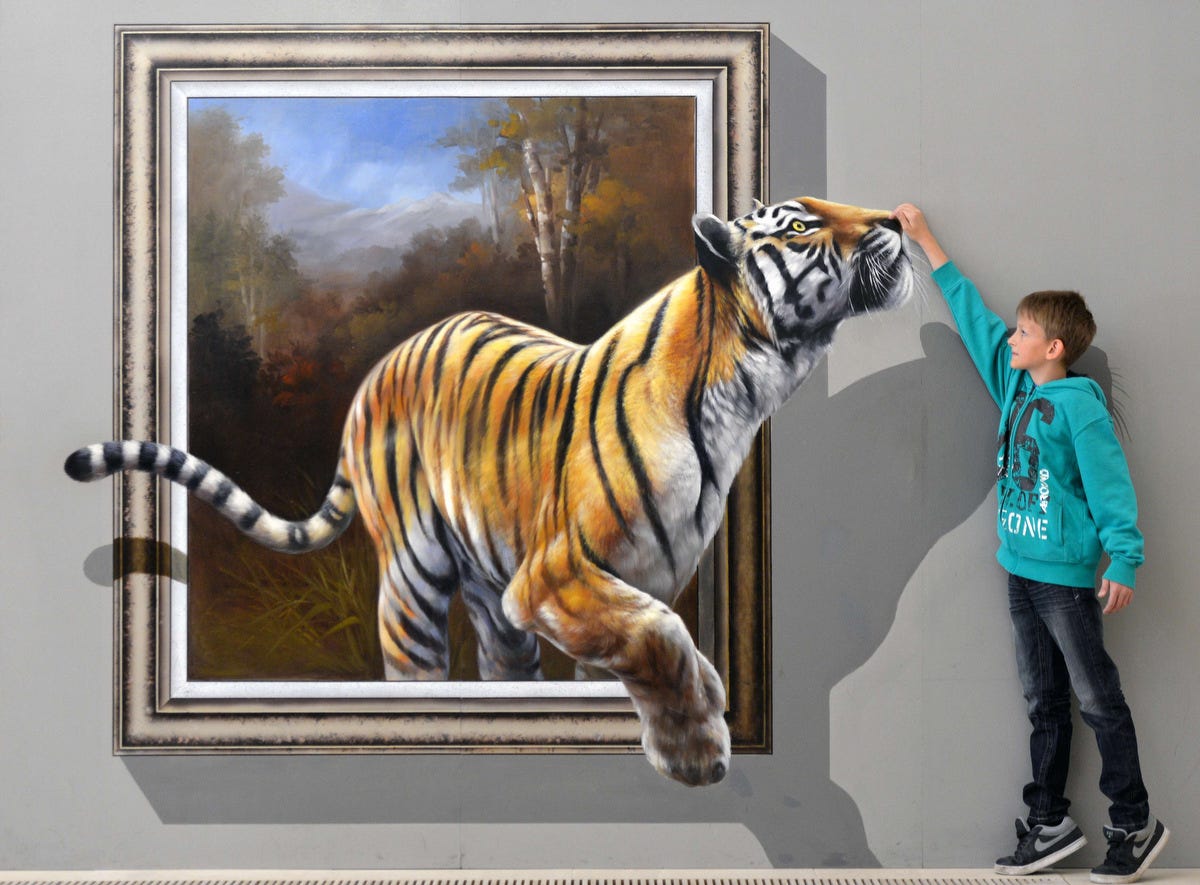
Perhaps the most vital part of creating this illusion is the use of shadows; you’ll notice that the tiger and picture frame (above) cast them, while the boy doesn’t. And some of them look like a lot of fun!


My favorite “posed” images, though, are the three I’ve found, below.
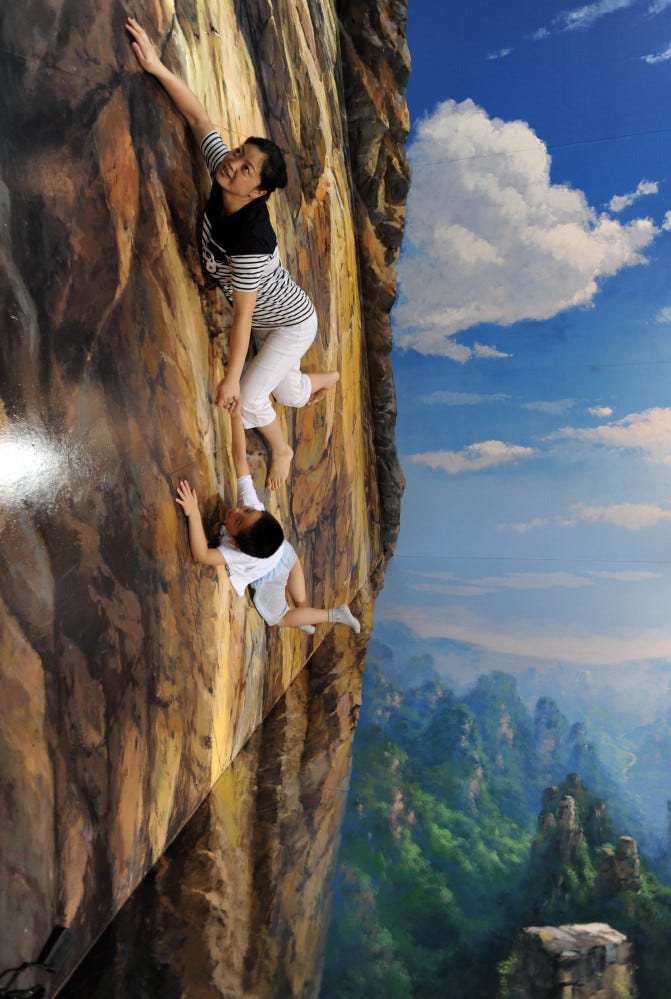
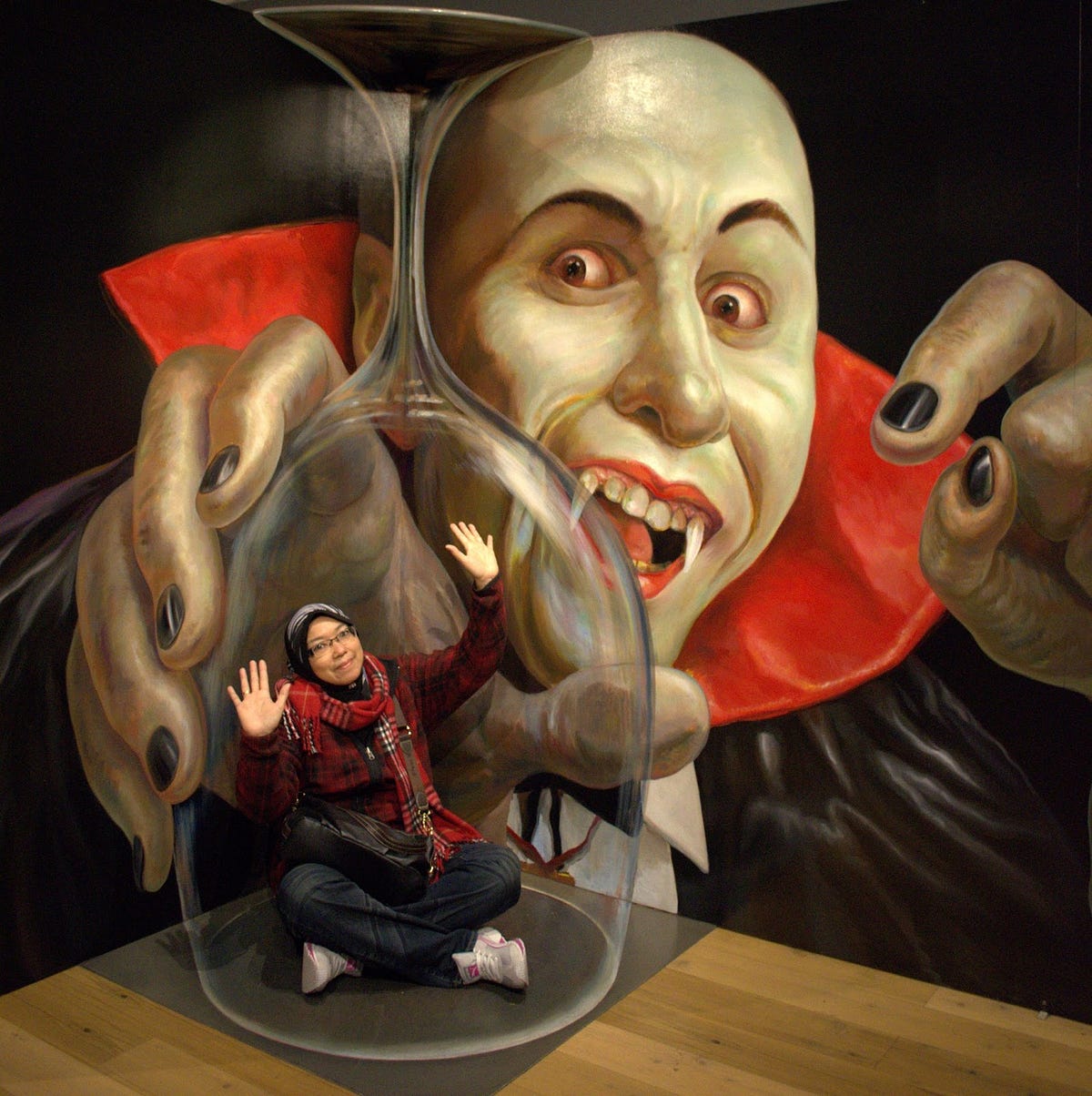

There are plenty of other images like this to sate your curiosity, including here, here and here.
I really hope you enjoyed this little diversion this weekend, and if you missed anything this past week or want to catch up on the best of our reader comments, check them out. Otherwise, I’ll see you back here soon for more natural wonders of the Universe!
Enjoyed this? Leave a comment at the Starts With A Bang forum on Scienceblogs!





